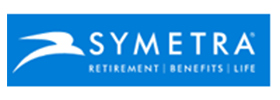blog
Cheap Insurance Is Expensive When You Actually Need It: The Hidden Costs of Underinsurance
When it comes to health insurance, healthshares, and personal coverage, most people make the same mistake: they shop for the lowest price. It makes sense—why pay more if you don’t have to? But when disaster strikes, cheap insurance can cost you more than you ever imagined.
The question isn’t, “How little can I pay?” but rather, “Am I truly protected when it matters most?”
The Illusion of “Affordable” Health Insurance
Many people believe they have great coverage—until they file a claim and realize their policy doesn’t cover what they expected. In the world of health insurance and healthshares, this issue is even more complex.
Low-cost health insurance plans often come with:
- High deductibles that make care unaffordable
- Limited networks that restrict your choice of doctors
- Surprise exclusions that deny coverage for essential treatments
Meanwhile, many healthshare programs (Christian healthshares, medical cost-sharing plans, and alternative health coverage options) can offer great benefits but require careful vetting to ensure they align with your specific healthcare needs.
The big mistake? People assume they’re covered—until a major medical event, accident, or lawsuit proves otherwise.
Cheap Insurance Is a Gamble on Your Future
Think about it this way: Would you rather save $50 a month now, or avoid a $50,000 bill later?
When people shop for insurance based on price alone, they unknowingly take on massive financial risk. This happens in:
- Health Insurance & Healthshares: You get a low premium but realize your out-of-pocket costs are astronomical.
- Homeowners Insurance: You find out your policy doesn’t cover flooding, foundation issues, or a roof replacement.
- Auto Insurance: You’re hit by an uninsured driver, and suddenly, you’re on the hook for thousands in repairs and medical bills.
- Life Insurance: You settle for a minimal policy, leaving your spouse and kids struggling financially after you’re gone.
Would you cut corners on the foundation of your house? Then why do it with the financial foundation that protects everything you own?
What Happens When You Actually File a Claim?
Many people don’t find out how good—or bad—their insurance is until they need to use it. Here’s what happens when you opt for the cheapest policy:
- ❌ Denied claims due to policy loopholes
- ❌Coverage gaps that leave you paying out-of-pocket
- ❌ Slow reimbursements that put you in financial limbo
- ❌ Surprise bills you never saw coming
Whether it’s a medical emergency, a home disaster, or an auto accident, underinsurance leaves you exposed at the worst possible moment. That’s not saving money—it’s setting yourself up for financial failure.
How to Make Sure You’re Actually Protected
Instead of focusing solely on price, consider:
- Comprehensive Coverage – Ensure your policy actually covers what you need.
- Realistic Deductibles – Can you afford your out-of-pocket costs in an emergency?
- Healthshare Plans That Fit Your Lifestyle – If using a healthshare, understand its reimbursement policies, network options, and eligibility rules.
- An Expert Insurance Advisor – Work with someone who understands your risks, goals, and financial situation.
The right policy isn’t about what’s cheapest—it’s about what gives you real peace of mind.
The Bottom Line
- If it’s cheap now, it could be expensive later.
- If you don’t know what’s covered, assume it’s not.
- If you’re underinsured, you’re unprotected.
The best insurance policy is one you never have to worry about. It’s there when life happens, not just when you’re looking at your bank statement.
Want to make sure you’re truly covered? Let’s talk. At ShieldPoint Insurance Advisors, we help you build a protection plan that works when you need it most.
The Truth About Health Insurance: Why Healthshares Are the Future of Affordable Healthcare
For decades, health insurance has been marketed as the only way to access quality medical care. But as premiums skyrocket, deductibles grow, and out-of-pocket expenses continue to rise, more Americans are waking up to the reality—the system is broken.
Traditional health insurance isn’t designed to provide affordable care; it’s structured to maximize profits for insurance companies, pharmaceutical corporations, and hospital networks. The result? Higher costs, limited choices, and a system that profits when you stay sick.
The Hidden Costs of Health Insurance
Many people assume that having health insurance means they are financially protected. However, the reality is far different:
- High Premiums – The average family premium now exceeds $20,000 per year, often with minimal coverage.
- Deductibles & Co-Pays – Even after paying expensive monthly premiums, individuals are still responsible for meeting high deductibles before insurance kicks in.
- Limited Networks – Many health insurance plans restrict you to a narrow list of providers, often forcing you to switch doctors or travel far for care.
- Surprise Billing – Despite having coverage, many patients receive unexpected bills due to out-of-network charges and hidden fees.
The problem isn’t just high costs—it’s a system that prioritizes paperwork, bureaucracy, and corporate profits over real healthcare solutions.
What Are Healthshares?
As health insurance becomes increasingly unaffordable, many Americans are turning to healthshares as a smarter, cost-effective alternative. Unlike traditional insurance, healthshares operate as community-driven healthcare solutions, where members share medical expenses without dealing with bloated administrative costs.
How Healthshares Work
- Monthly Contributions Instead of Premiums – Members contribute a set monthly amount, which goes directly toward covering eligible medical expenses.
- Freedom to Choose Your Doctor – No restrictive networks—members can seek care from any provider they trust.
- Transparent & Fair Pricing – Instead of inflated costs negotiated behind closed doors, healthshares work with direct-pay providers, often resulting in significantly lower bills.
- Emphasis on Real Healthcare – Many healthshares focus on preventative care, lifestyle medicine, and proactive health management instead of simply covering reactive treatments.
The Benefits of Healthshares Over Traditional Health Insurance
| Feature | Healthshares | Traditional Health Insurance |
|---|---|---|
| Monthly Cost | Lower, fixed contribution | High, ever-increasing premiums |
| Deductibles | Often minimal or none | High, must be met before coverage applies |
| Doctor Choice | Any doctor, no network restrictions | Limited network options |
| Focus | Preventative & holistic health | Treatment-focused, symptom management |
| Billing Transparency | Clear, upfront pricing | Hidden fees, surprise billing |
| Community-Based | Members support each other’s medical expenses | Profits go to corporations & middlemen |
For families, self-employed individuals, and anyone frustrated with the limitations of health insurance, healthshares provide a flexible, transparent, and financially sustainable alternative
Is a Healthshare Right for You?
If you’re tired of overpaying for health insurance, dealing with network restrictions, and getting buried in medical debt, it’s time to consider a healthshare.
- You’re looking for an affordable alternative to traditional insurance
- You want more freedom in choosing healthcare providers
- You prefer a community-driven approach to covering medical costs
- You value transparency, direct pricing, and lower overall costs
With the healthcare industry focused on profits over patients, now is the time to break free from the insurance trap and take control of your healthcare decisions.
Final Thoughts
Traditional health insurance is no longer the only option. Healthshares offer a practical, cost-effective, and transparent solution that prioritizes people over profits. Whether you’re a freelancer, a small business owner, or just someone seeking real healthcare freedom, a healthshare might be the answer you’ve been looking for.
Ready to explore a smarter way to manage your healthcare costs? Let’s talk about how a healthshare can work for you!
#Healthshares #HealthInsuranceAlternative #AffordableHealthcare #MedicalFreedom #TransparentHealthcare
Why Life Insurance Is the Best Way to Protect Your Family’s Future
💡 “Providing for your family doesn’t stop when you’re gone.”
Life is unpredictable. You work hard to provide for your loved ones, ensuring they have a stable home, financial security, and opportunities for the future. But what if something happens to you? Would your family be financially secure without your income?
This is where life insurance plays a crucial role—it’s not just a policy, it’s a promise. A promise that no matter what happens, your family will be taken care of.
What Happens to Your Family Without Life Insurance?
Many people assume that if they pass away, their family will somehow manage. But the financial reality can be devastating. Without adequate life insurance coverage, your loved ones could face:
- ❌ A mortgage they can’t afford – possibly losing the family home.
- ❌ Outstanding debts – including credit cards, car loans, and medical bills.
- ❌ Lost income – making it difficult for your spouse and children to maintain their lifestyle.
- ❌ No college savings – putting your children’s future education at risk.
- ❌ Final expenses – the average funeral costs between $7,000 and $12,000, which can create an unexpected financial burden.
Life insurance ensures that your family doesn’t have to struggle financially during one of the hardest times of their lives.
What Does Life Insurance Cover?
When you have the right life insurance policy, you provide a financial safety net for your loved ones. Depending on the type of coverage you choose, life insurance can:
- Replace lost income – ensuring your family can maintain their standard of living.
- Cover debts and final expenses – eliminating financial stress during a difficult time.
- Fund your children’s education – so they don’t have to sacrifice their future.
- Provide financial security for your spouse – allowing them to focus on healing rather than worrying about money.
- Cover estate taxes and legal fees – preventing additional financial burdens on your heirs.
Whether you choose term life insurance for temporary coverage or permanent life insurance for lifelong protection, the right policy ensures your family’s financial future is secure.
How Much Life Insurance Do You Need?
The right amount of life insurance coverage depends on your personal financial situation, but a common recommendation is to have 10-15 times your annual income.
Consider:
- 💰 Your monthly expenses and debts
- 💰 Your family’s cost of living
- 💰 The future needs of your spouse and children
- 💰 The long-term financial goals you want to protect
A life insurance agent or advisor can help you determine the best coverage amount based on your needs. It’s not just about having life insurance—it’s about having the right amount of life insurance.
Types of Life Insurance: What’s Best for You?
There are several types of life insurance, each serving different financial needs and goals:
1. Term Life Insurance
- Provides coverage for a set period (e.g., 10, 20, or 30 years).
- Affordable and ideal for families looking for financial protection during critical earning years.
- Pays a death benefit if the insured passes away during the term but has no cash value.
Best for: Young families, homeowners, and those needing coverage at an affordable rate.
2. Whole Life Insurance (Permanent Life Insurance)
- Covers you for life and includes a cash value component that grows over time.
- Offers guaranteed death benefits and fixed premiums.
- Can be used for estate planning and tax-efficient wealth transfer.
Best for: Long-term financial security, legacy planning, and building cash value over time.
3. Indexed Universal Life Insurance (IUL)
- A type of permanent life insurance that builds cash value based on stock market index performance.
- Offers flexibility in premium payments and death benefits.
- Provides tax-advantaged cash growth potential without direct stock market exposure.
Best for: Individuals looking for lifetime coverage with a wealth-building component and potential for tax-free withdrawals.
4. Private Placement Life Insurance (PPLI)
- A specialized form of life insurance designed for high-net-worth individuals seeking tax-efficient investment strategies.
- Allows for alternative asset classes, such as hedge funds and private equity, to be held within the policy.
- Provides privacy, asset protection, and estate planning advantages.
Best for: Ultra-high-net-worth individuals looking for customized investment and tax-advantaged wealth transfer strategies.
Life Insurance Isn’t for You—It’s for Them
One of the biggest misconceptions about life insurance is that it’s an expense. The truth? It’s an investment in your family’s future.
- 🚗 You wouldn’t drive without car insurance.
- 🏡 You wouldn’t own a home without homeowners insurance.
- 💰 So why would you leave your family’s future unprotected?
When you purchase life insurance, you’re making a selfless decision—one that guarantees your loved ones won’t struggle financially if the unexpected happens. That’s real love.
⏩ Don’t wait until it’s too late. Protect your family today with the right life insurance policy
📩 Contact us to discuss your options and secure your family’s future.
#LifeInsurance #FamilyProtection #TermLifeInsurance #WholeLifeInsurance #IndexedUniversalLife #PrivatePlacementLifeInsurance #FinancialSecurity #LegacyPlanning
Why You Need a Risk Management Advisor—Not Just an Insurance Agent
When it comes to protecting your wealth, business, and family, buying insurance isn’t enough—you need a risk management strategy that’s tailored to your unique needs. Many people make the mistake of thinking that all insurance agents are the same, but there’s a big difference between a transactional insurance agent and a risk management advisor who helps you proactively protect your assets.
At ShieldPoint Insurance Advisors, we go beyond just selling policies—we work with our clients to develop a comprehensive risk management plan that ensures long-term financial security.
What’s the Difference Between an Insurance Agent and a Risk Management Advisor?
1. A Traditional Insurance Agent Sells You a Policy—A Risk Management Advisor Builds a Strategy
Most run-of-the-mill insurance agents are focused on selling you a policy, often based on price alone. Their job is to get you covered—but they may not take the time to analyze your total risk exposure or ensure you have the right protections in place.
A risk management advisor, on the other hand, doesn’t just sell you insurance—they create a long-term protection strategy that aligns with your financial goals, lifestyle, and future plans.
- Do you have hidden liability risks?
- Are your policies structured properly to protect your business and personal assets?
- Have you factored in estate planning, tax efficiency, or high-net-worth risk mitigation?
At ShieldPoint Insurance Advisors, we take a holistic approach to risk management—because true protection is about more than just having an insurance policy.
2. An Insurance Agent Gives You a Quote—A Risk Management Advisor Identifies Coverage Gaps
If you’ve ever requested an insurance quote online or from a general agent, you probably received a one-size-fits-all policy with little explanation of what’s actually covered.
🚨 The problem? Many policies are loaded with exclusions, limitations, and hidden gaps that leave you exposed when you need coverage the most.
A risk management advisor doesn’t just hand you a quote—they perform a deep-dive assessment of your risks and tailor coverage to protect against worst-case scenarios.
- Are your home, vehicles, and business properly insured for catastrophic loss?
- Do you have high enough liability limits to protect your net worth?
- Is your coverage structured to minimize legal and financial risks?
With ShieldPoint, you don’t just get a policy—you get expert guidance that ensures you’re truly protected when disaster strikes.
3. An Insurance Agent Works for a Commission—A Risk Management Advisor Works for You
Most insurance agents work for a commission and are incentivized to sell policies that fit within their carrier’s offerings. This means they may push standard policies that don’t necessarily provide the best protection for your situation.
At ShieldPoint Insurance Advisors, we act as your advocate—not just an insurance salesperson.
- We work with multiple top-rated insurance carriers, ensuring you get the best coverage, not just the most convenient option.
- We tailor policies to protect high-net-worth individuals, business owners, and families with complex financial needs.
- We provide ongoing risk analysis to make sure your coverage evolves as your assets and liabilities change.
Your financial security isn’t just about getting insured—it’s about having the right advisor to guide you through risk management.
Why ShieldPoint Insurance Advisors?
At ShieldPoint, we specialize in comprehensive risk management for those who need more than just a basic insurance policy. Our clients trust us because we:
- Take a proactive approach to risk management—anticipating threats before they become financial disasters.
- Customize insurance solutions for high-net-worth individuals, entrepreneurs, and business owners.
- Help protect your legacy through proper estate planning and asset protection strategies.
- Provide ongoing support and consultation—because your risks don’t stay the same, and neither should your coverage.
Don’t Just Buy a Policy—Build a Risk Management Plan
If you’re looking for more than just an insurance policy, you need a risk management advisor who understands how to protect everything you’ve worked hard to build.
At ShieldPoint Insurance Advisors, we don’t just sell policies—we provide peace of mind.
⏩ Let’s build your risk management strategy today. Contact us to schedule a consultation.
#RiskManagement #InsuranceAdvisor #AssetProtection #ShieldPointInsurance #WealthPreservation #HighNetWorthInsurance #BusinessRiskManagement #EstatePlanning














